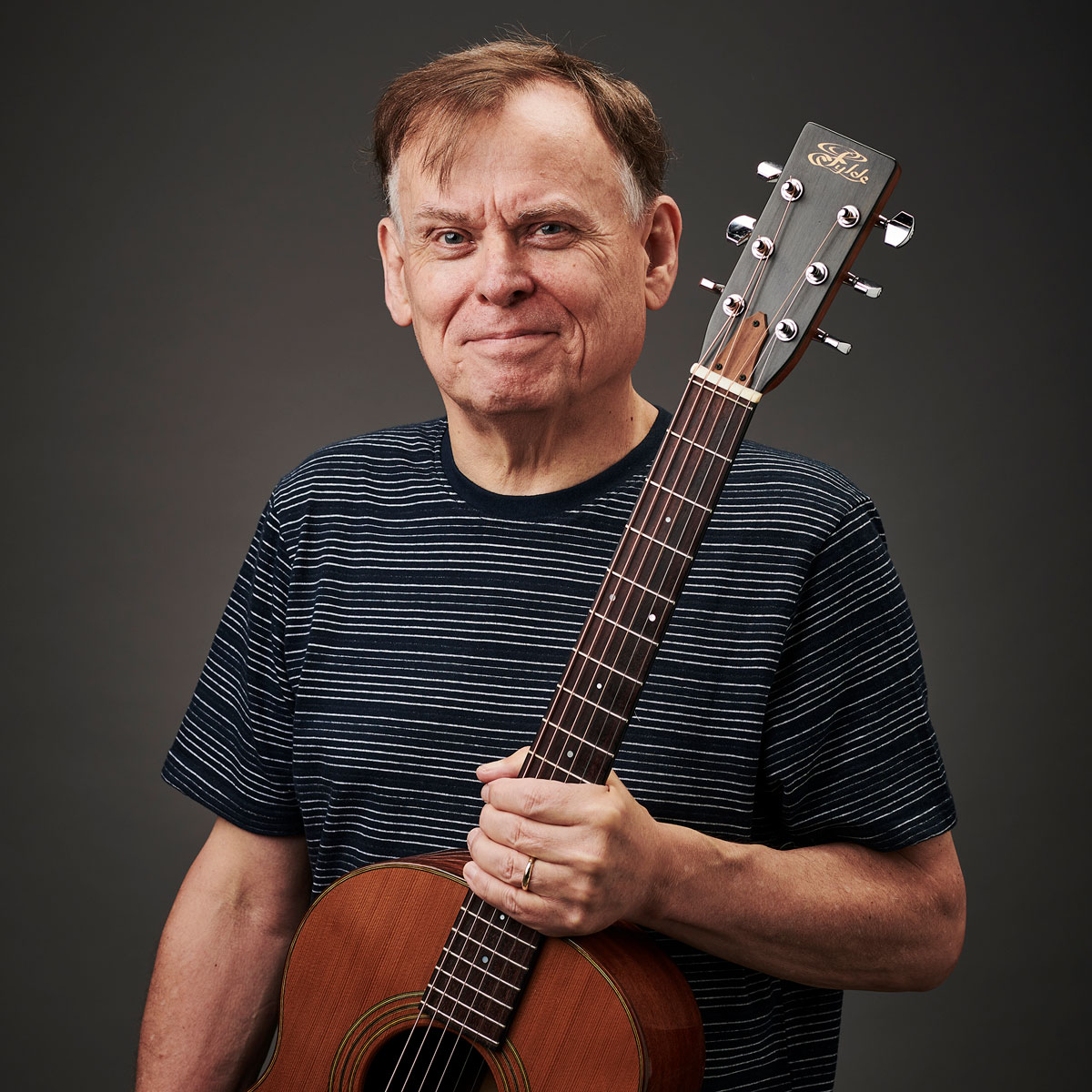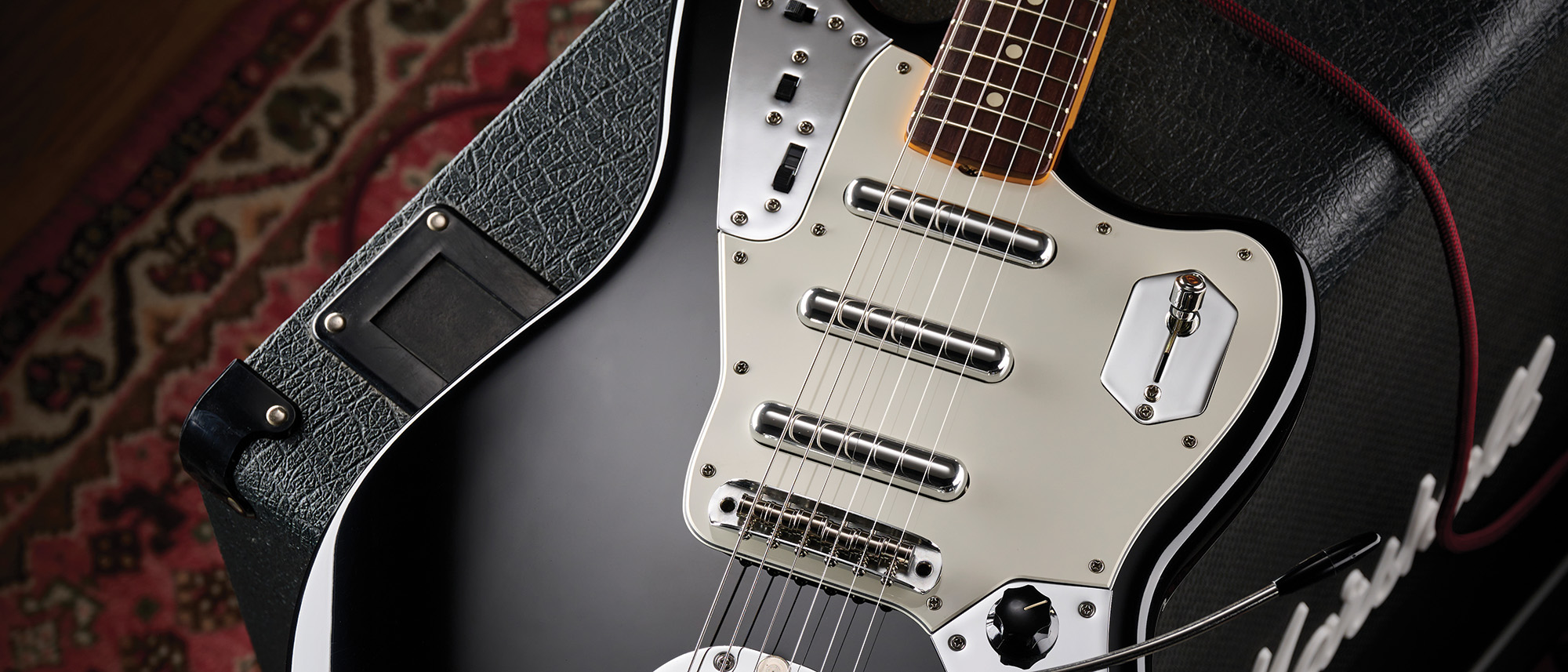Geoff Tyson on the big gear questions, 20-kilo guitars and his Frankenstein “hodge-podge“ Strat
Satriani’s former student checks in to talk about the buying and selling of gear and that digital amp that sits by the door
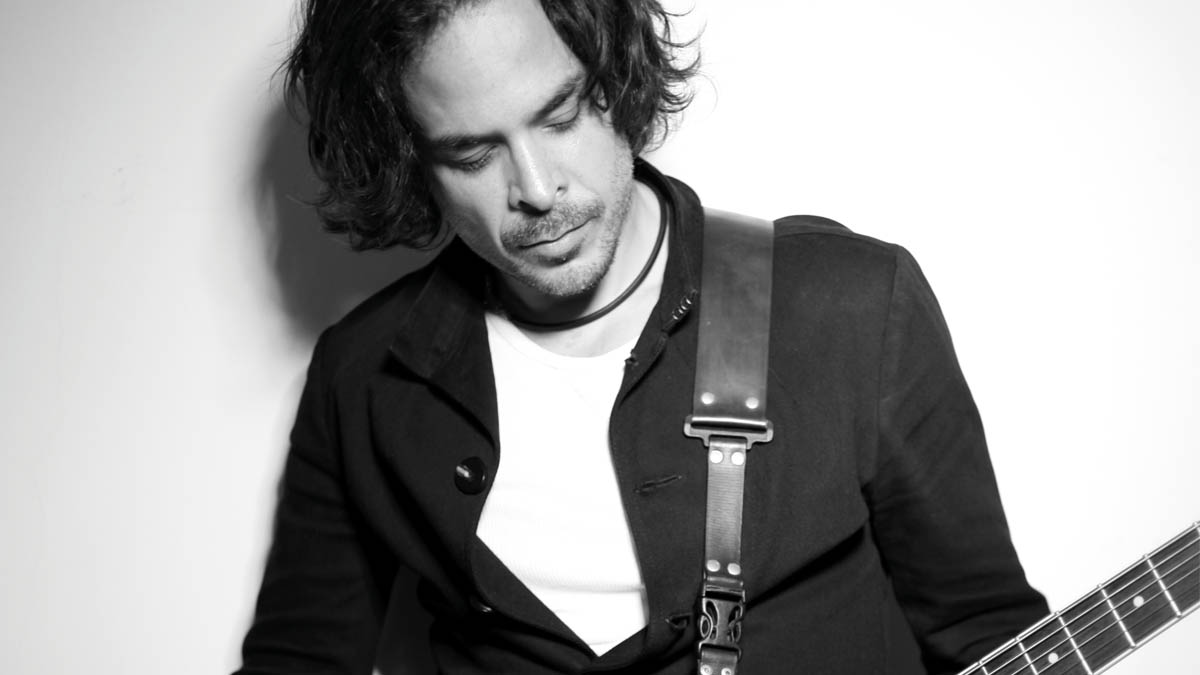
All the latest guitar news, interviews, lessons, reviews, deals and more, direct to your inbox!
You are now subscribed
Your newsletter sign-up was successful
Only a few months ago we had Mr Joe Satriani come sit in and answer these very same questions about gear loves and gear losses, buyer's remorse and more, so it's only fitting that we have one of his former pupils, the supremely talented Geoff Tyson come in too.
Tyson has just released Drinks With Infinity, an album that showcases his prodigious rock guitar chops and taste of marrying mischief to passages of jaw-dropping technique.
Presently living in the Czech Republic, Tyson talks about that Nikki Sixx bass that got away, making the deal of a lifetime in rural Indiana, and the importance of finding a guitar that speaks to you...
What was the first serious guitar that you bought yourself?
“It was a Gibson ES-335 solidbody, which was a limited-edition thing. A very strange guitar, I think they only made it for a year or something. It had 22 frets, rosewood fretboard… it was actually a good instrument.
A buddy of mine in Los Angeles makes a guitar that is a really weird instrument. It’s a baritone and it probably weighs 20kg; it’s the weirdest, grooviest, heaviest instrument that I’ve ever owned
“I ended up selling it when I was a teenager and actually found it again maybe 30 years later at a Guitar Center in Northern California and I knew it was mine because I dropped it and it had a chip in the paint and I recognised it immediately.
“They were selling it for something like $2,800 as a vintage classic instrument – I think I paid $180 for it originally.”
All the latest guitar news, interviews, lessons, reviews, deals and more, direct to your inbox!
What was the most recent guitar you bought?
“I’ve actually just bought a bunch of guitars. I’ve got an Ibanez S570, which was something I needed – 24 frets, just a very fast, multi-functional guitar. There’s not a whole lot of a selection in the Czech Republic [where Geoff is currently living] and so I was happy to find it.
“Then a buddy of mine in Los Angeles makes a guitar that is a really weird instrument. It’s a baritone and it probably weighs 20kg; it’s the weirdest, grooviest, heaviest instrument that I’ve ever owned.
I put together a hybrid guitar – I call it my little Frankenstein. It’s a Fender body, vintage kind of a thing and then just a hodge-podge of various pickups and electronics
“It’s got Bare Knuckle pickups in it, it’ll tune down to G… It’s a very unique instrument. Then I put together a hybrid guitar – I call it my little Frankenstein. It’s a Fender body, vintage kind of a thing and then just a hodge-podge of various pickups and electronics that I could find.
“When I was working on this album I wanted something that wasn’t a flashy guitar, it wasn’t a shredder kind of an instrument, so I put this thing together going against my better wisdom.”
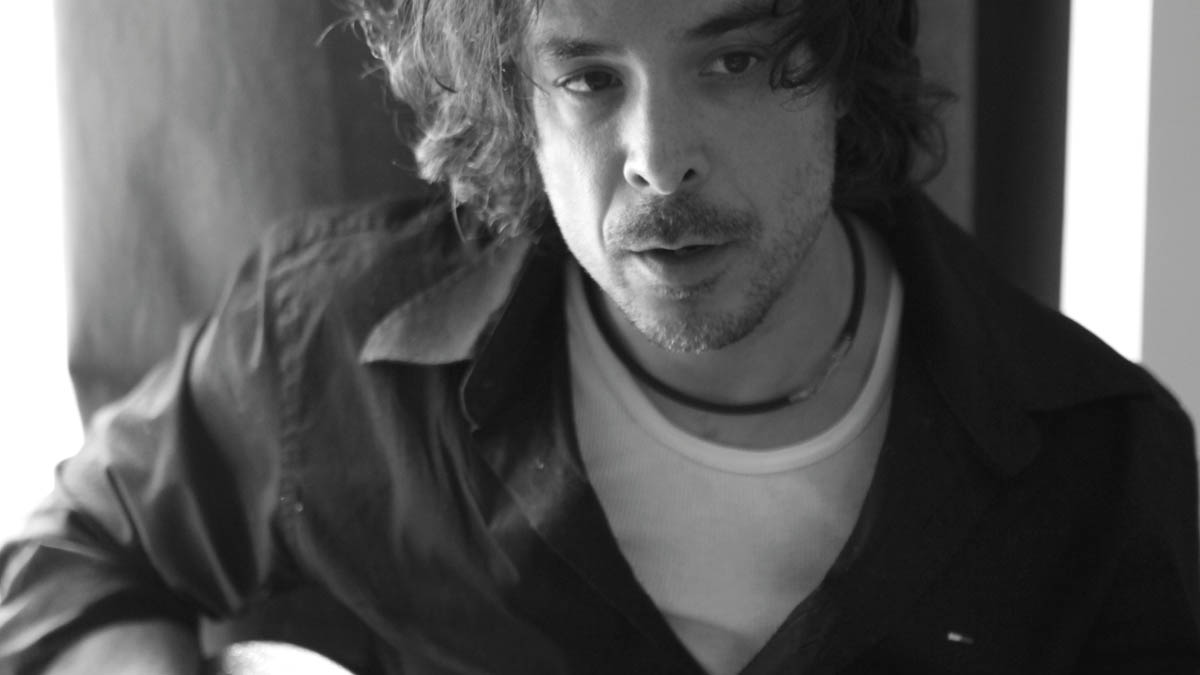
“I’ve got a very simple rig. I’ve got the Frankenstein guitar and the Ibanez and then it’s just a tuner pedal and an MXR Phaser, which I sometimes change out for a Dunlop Rotovibe – I don’t even have a pedalboard – and that just goes straight into a Marshall Plexi with a Marshall 4x12 slanted cab. I’m actually looking into sizing down on the amplifier. I really love the Matchless combos, even the Ampeg Reverberocket series that they were making in the 90s I thought were great. I’d have to research more to see if there’s anything new that I would get into, but that’s basically it.”
What’s your best guitar-buying tip?
“I would say find a guitar that speaks to you. Find that guitar and then do your research. If, for example, it’s a Fender Jaguar that isn’t typically a lead instrument and lead is your passion and you like the way that thing looks, you’re going to have to make some compromises.
“Once you have that, play as many as you can and ask a lot of people their advice – and when you find that guitar you’ll know it. When you finally find something that you’re passionate about you’ll feel it and it will make you want to play it more.”
What’s the most incredible find or bargain you’ve ever had when buying guitars?
“I was dating this hippy girl and she would take me to these weird communes in rural Indiana. We were driving past this little pawn shop and they had this Gibson Hummingbird – I think it was a 1974 – and I asked them how much they wanted for it and they went to a Blue Book that was completely outdated.
“I don’t think they understood what they had, and I ended up buying my absolute favourite acoustic guitar for under $200. It had some cosmetic damage but it’s a gorgeous-sounding guitar, it records so well and it’s so fun to play.”
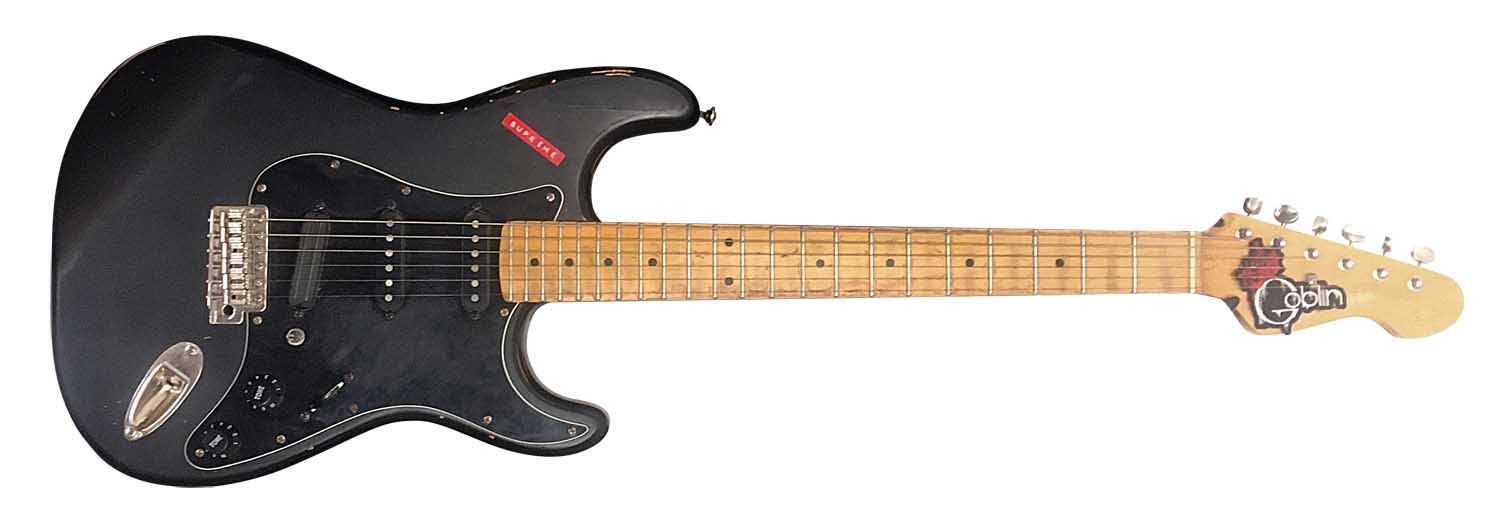
What’s the strongest case of ‘buyer’s remorse’ that you’ve had after buying a guitar or piece of gear?
“When I got a digital amp. I was on tour at the time and I was playing an old Marshall combo and it kinda quit on me and I needed something very quickly. I got this thing that was like a 2x12 combo digital amplifier and it sounded fine in the room, but once you turned it up or put a microphone in front of it… Dear God.
“And it was so unbelievably heavy – it doesn’t have tubes in it, why is it so heavy? I don’t know. I still have it, it sits by the front door and that’s where people put their keys and COVID masks.”
Have you ever sold a guitar that you now intensely regret letting go of?
“Yeah, it was a Nikki Sixx Gibson bass – the Blackbird. It was like a Thunderbird but it was all black. It was a gorgeous bass and I don’t remember why it was that I sold it, it was such a great instrument. I don’t think I’ve sold anything that I really regret. I keep all of it. If I need more room I’ll just get a bigger house.”
I don’t think I’ve sold anything that I really regret. I keep all of it. If I need more room I’ll just get a bigger house
Are there any common design features on electric guitars that are an instant turn-off for you when you audition new instruments?
“The original design of the Fender Stratocaster has the knobs and the pickup selector switch where they are and I cannot adjust my playing in a way that I don’t constantly turn the volume down and change the pickups accidentally.
“That, to me, is just incredibly obnoxious and the guitars that I’ve had in that format I’ve removed the volume knob and had the pickup switch replaced.“
When was the last time you stopped to stare in a guitar shop window and what were you looking at?
“Actually there’s a very unique used guitar place in Budapest – the name escapes me – but they have a whole selection of instruments that were made during the Communist era.
“These guitars are prohibitively expensive because they are considered historical pieces, and I imagine that they would sound so unique and evoke a certain kind of a style that would be unique to that instrument. If I ever have a lot of expendable income, I’ll probably head back.”
If you can get it up loud enough you can make any amp work. If a guitar doesn’t inspire you, why make it louder, right?
If forced to make a choice, would you rather buy a really good guitar and a cheap amp – or a cheap guitar and a top-notch amp?
“I’d say good guitar, cheap amp. It depends on the application but there are a lot of things you can do with recording: you can split the signal and record a DI from the guitar and then there’s a lot of really good amp sims and distortion plug-ins that are fine.
“You can even reamplify through another amplifier at another time. For live playing it’s kind of the same thing, y’know: if you can get it up loud enough you can make anything work. If a guitar doesn’t inspire you, why make it louder, right?”
If you could only use humbuckers or single coils for the rest of your life which one would you choose and why?
“Single coils for their versatility. You can get much better clean tones with a single coil and when you’re trying to get a really crunchy, overdriven tone you have to drive the amp harder.
“In the case of a tube amplifier, by the time you get it loud and crunchy enough you’re getting power amp distortion as well. Distortion’s not just coming from the preamp section, it’s coming from the power amp as well and that’s stressing the speakers and you end up getting an extremely powerful tone without it just being overdriven.
“In that case it’s better for rhythm guitar, it can be a lot more percussive, and for lead stuff it’s cutting through really, really well. Hopefully I won’t have to make that choice, but that’s my first thought.”
- Geoff Tyson’s new album, Drinks With Infinity, is available now via Cargo Records.
With over 30 years’ experience writing for guitar magazines, including at one time occupying the role of editor for Guitarist and Guitar Techniques, David is also the best-selling author of a number of guitar books for Sanctuary Publishing, Music Sales, Mel Bay and Hal Leonard. As a player he has performed with blues sax legend Dick Heckstall-Smith, played rock ’n’ roll in Marty Wilde’s band, duetted with Martin Taylor and taken part in charity gigs backing Gary Moore, Bernie Marsden and Robbie McIntosh, among others. An avid composer of acoustic guitar instrumentals, he has released two acclaimed albums, Nocturnal and Arboretum.
